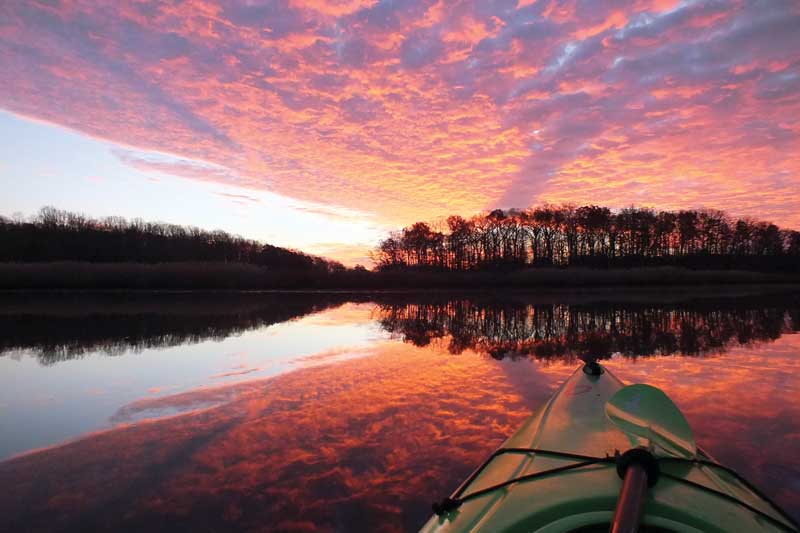Zipping from point to point at full throttle is lots of fun and can get you across the Bay and to your destination in a hurry. But there are times when slowing down can be fun too. Taking time to explore the shoreline and observe wildlife has its own pleasures and is a welcome change of pace at this time of year when the wind whipping across your bow is biting, not refreshing. Here we offer suggestions for walking, hiking, or paddling the Chesapeake. Most of these venues have seasonal closures, often associated with wildlife management, and some have entrance or parking fees. Several offer guided and/or interpretive walks. Check websites for more details before heading out. Enjoy these fantastic natural areas!
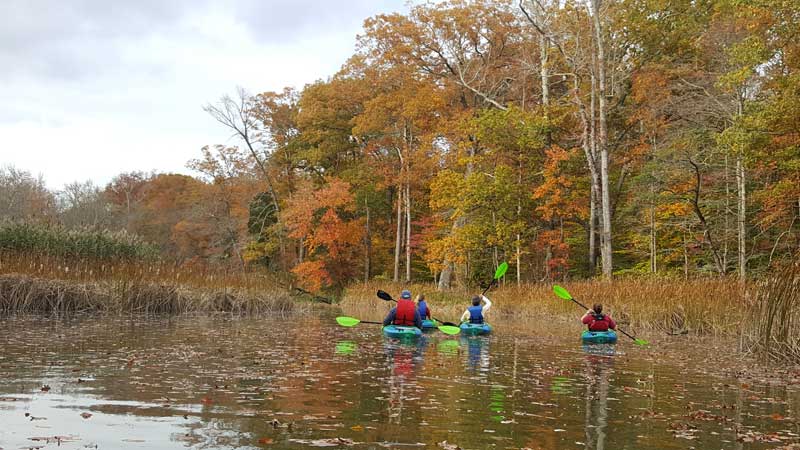
Blackwater National Wildlife Refuge
This large refuge, located south of Cambridge on Maryland’s Eastern Shore, was established as a waterfowl sanctuary for birds migrating along the Atlantic Flyway. Blackwater NWR currently encompasses more than 32,000 acres and has been referred to as the “Everglades of the North.” More than 20,000 acres are open for public recreation, and you can experience the refuge year-round. There are five miles of hiking trails and 17 miles of paddling trails. Several bike routes are appropriate for novice to experienced cyclists.
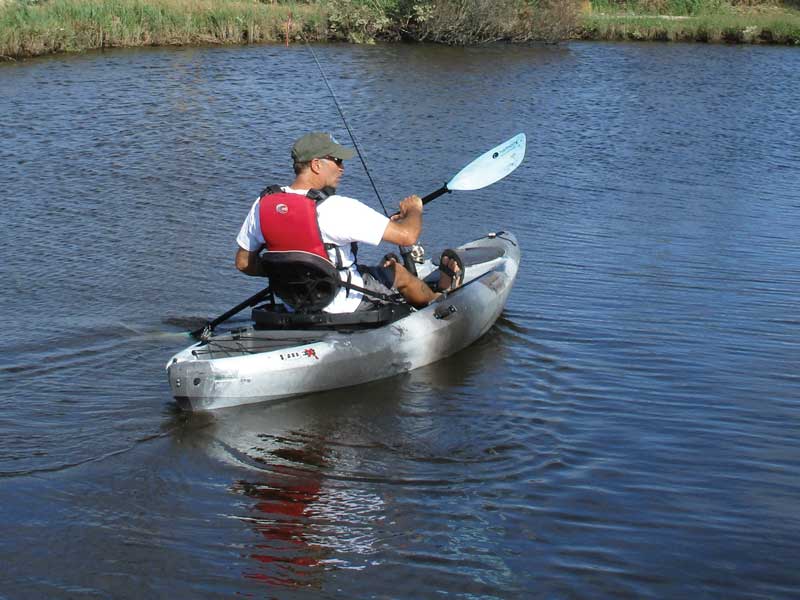
Chesapeake Bay Environmental Center
CBEC is a 510-acre wildlife preserve on Maryland’s Eastern Shore. It’s located in Grasonville, south of the Kent Narrows Bridge on Prospect Bay. Along four miles of marked walking trails you will find woodlands, marshes, and meadows. More than 20 species of birds are regularly seen here. From April 22 to November 1, you may rent kayaks and paddleboards. Wildlife you may see include ospreys, eagles, river otters, terrapins, sting rays, various waterfowl, and even dolphins.
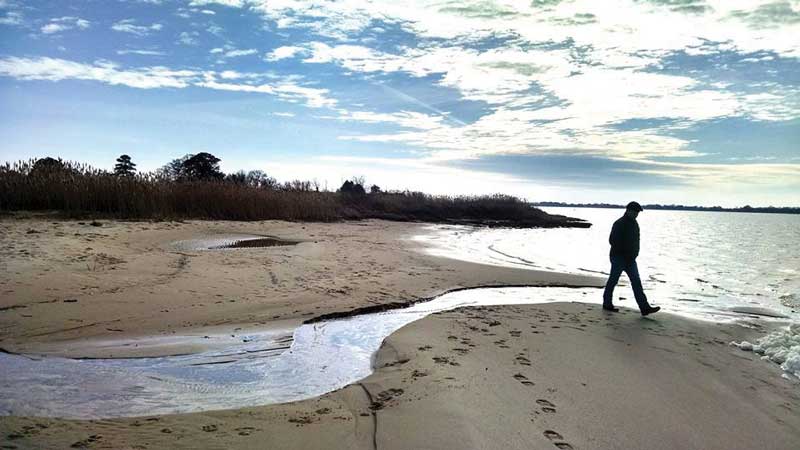
Kiptopeke State Park
Located at the southern tip of Virginia’s Eastern Shore, Kiptopeke State Park has more than five miles of hiking and bicycle trails, is located just three miles from the northern terminus of the Chesapeake Bay Bridge-Tunnel and is part of the Atlantic Flyway. The upland hardwood forest and southern beach areas provide opportunities to hike and view many kinds of wildlife, especially migratory birds. The upland Baywoods Trail and southern beach are connected by extensive boardwalks so that visitors may explore Kiptopeke’s dune formation. Bicycle trails are also available. The park also offers a lighted fishing pier, boat ramp, and overnight cabins and lodges.
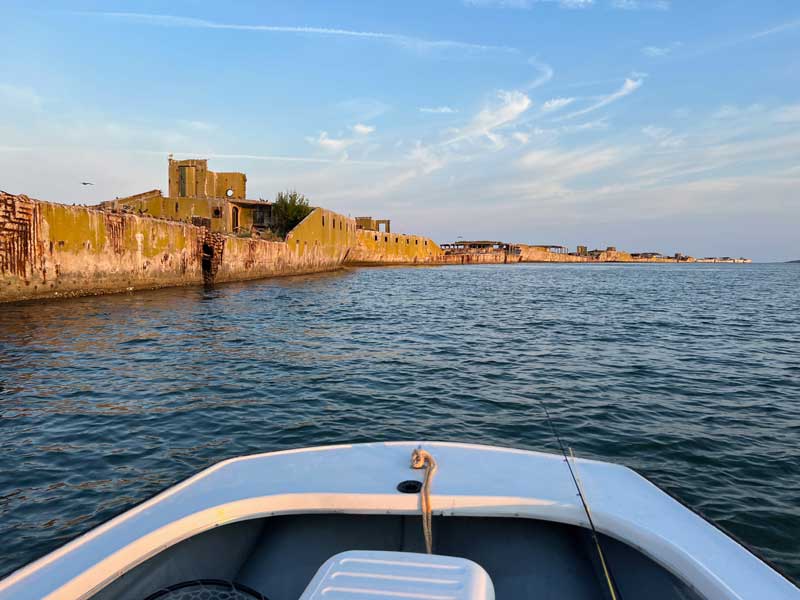
Jug Bay Wetlands Sanctuary
At this sanctuary you may walk the boardwalks along marshland and enjoy the quiet wetlands of the tidal Patuxent in southern Anne Arundel County, MD. Jug Bay Wetlands Sanctuary protects approximately 1700 acres of unique tidal freshwater marshes, forested wetlands, upland and riparian forest, creeks, meadows, pine and sand barrens, and fields along the Patuxent River. Today the sanctuary is a safe haven for wildlife, but it also has more than 80 identified archaeological sites of interest from earlier human habitation, dating back 11,000 years. For kayakers and canoe enthusiasts, there are two paddle-in only campsites available at the sanctuary’s Emory Waters Nature Preserve. More information and trail maps at can found at jugbay.org.
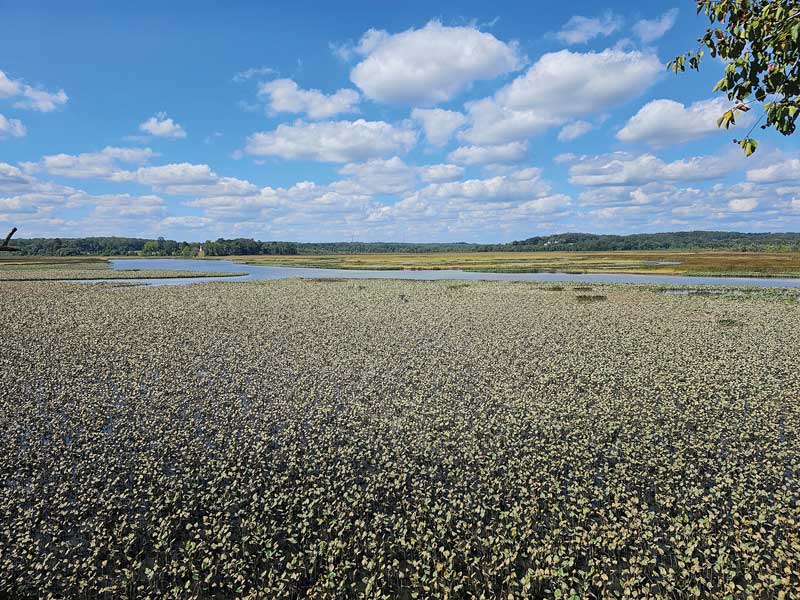
Dameron Marsh Natural Area Preserve
This 316-acre preserve, located on Harding’s Point, south of Mill Creek and Ingram Bay on the Western Shore of Virginia, is one of the most significant wetlands on the Chesapeake Bay for marsh-bird communities. Public access facilities include a trail, a boardwalk, and a wildlife viewing platform that provides a lookout point over the preserve’s extensive salt marshes and the Bay. These marshes offer superb views where you may spot a bald eagle, brown pelican, wintering waterfowl, or wading birds. A put-in site for kayaks and canoes is also available.
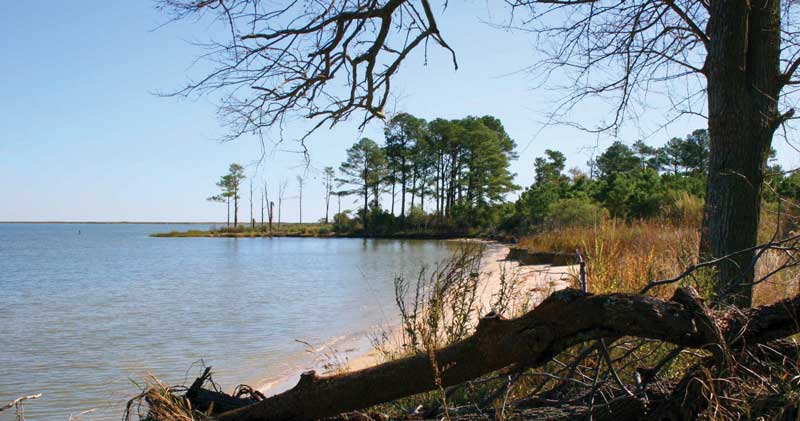
Marshy Point Nature Center
Located in Baltimore County, this waterfront nature area features scenic views of Dundee and Saltpeter Creeks from its hiking and kayaking trails. The hiking trails cover more than eight miles and wind through wetlands and coastal plain forest. For paddlers, the self-guided one-mile circuit around Dundee Creek includes stops at shoreline features that can be interpreted through the guide map. BYOB—bring your own boat. Canoes and kayaks onsite are for naturalist programs only and are not available to rent.
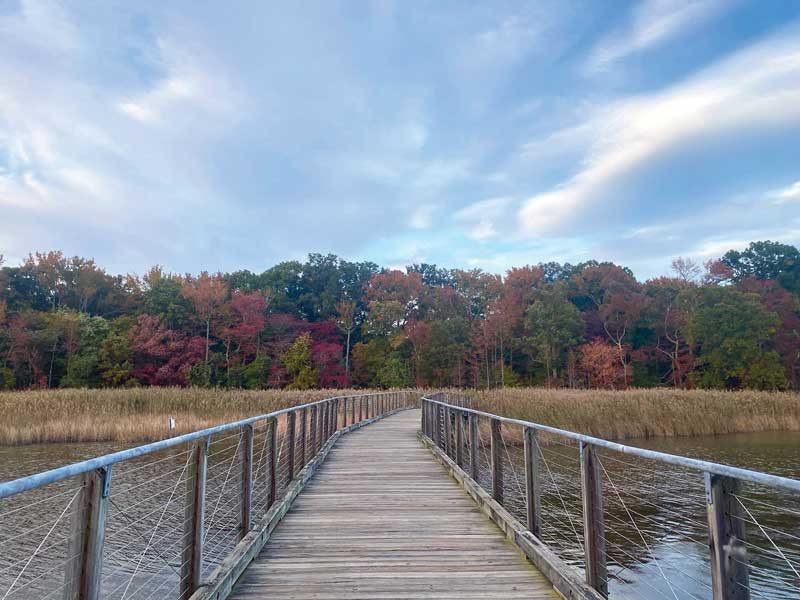
Smithsonian Environmental Research Center
Known as SERC, this environmental center is located in Edgewater, MD, and sits on the shores of the Rhode River. It is the largest block of contiguous preserved land and the largest site of public access on the Western Shore. SERC has four miles of trails for hiking, walking, or biking, as well as a floating dinghy dock for launching kayaks or canoes or tying up a dinghy. Walking and kayak/canoe trail maps are available. Free guided walking tours will resume in the spring.
